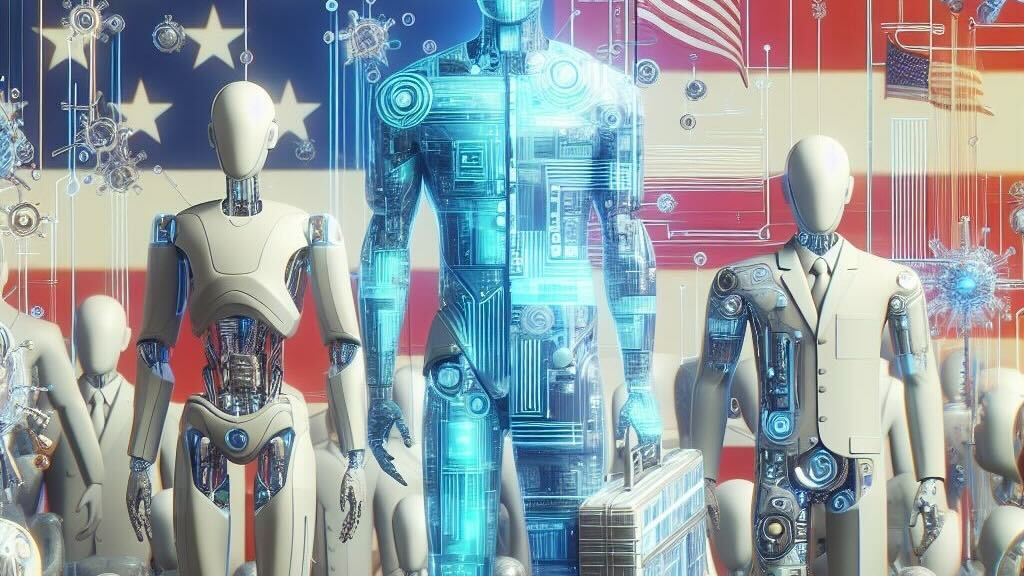90% of Jobs at Risk Due to Generative AI Adoption: Cognizant and Oxford Economics Report


In Brief
Cognizant and Oxford Economics’ economic impact research predicts global job scarcity incoming due to adoption of generative AI worldwide.

IT company Cognizant in collaboration with Oxford Economics unveiled several intriguing findings from its recent economic impact research. The study anticipates that 90% of jobs could undergo disruption due to the introduction of generative artificial intelligence (AI).
However, the extent of technology’s impact is expected to be influenced by the pace of business adoption and the ability of individuals to swiftly adapt to novel work methodologies.
Cognizant examined three scenarios regarding the adoption of generative AI by businesses in the United States to assess its potential impact on productivity and the future of work. The economic model took into account 18,000 tasks crucial to the US economy, meticulously analyzing the potential influence of generative AI on jobs associated with these tasks.
While the research focused on the US workforce, the researchers assert that the findings have global applicability. Among the findings researchers highlighted five key insights.
One notable discovery is that the adoption of AI is expected to surge in the coming decade before stabilizing. Businesses are currently in the experimental phase of incorporating AI capabilities. The study suggests that adoption rates could increase significantly, jumping from 13% to 31% within a span of four to eight years.
The predictions indicate a potential slowing down of adoption after the 15-year mark, yet anticipate a continued growth for at least another 15 years.
Moreover, the researchers found that there is a possibility of significant economic growth: generative AI technology has the potential to increase US productivity by 1.7-3.5% and contribute to the growth of the country’s GDP by an estimated $477 billion to $1 trillion annually over the next 10 years, depending on how quickly businesses adopt the AI.
Generative AI Could Lead to Global Job Scarcity
The study asserts that there is a potential for significant changes in the job market: around 52% of all jobs are expected to undergo alterations due to the integration of generative AI for automating tasks. Consequently, approximately 9% of the existing US workforce may face displacement, with 1% potentially encountering challenges in securing new employment, following historical economic patterns.
Jobs requiring higher levels of knowledge work will face most impact as generative AI is set to disrupt knowledge-intensive tasks.
Credit analysis, computer programming, web development, database administration and graphic design, already have a theoretical maximum exposure score of around 50% with the potential to rise to 80% by 2032.
Chief executive officers, including C-Suite executives, may also experience be affected —- as the study data indicates use of generative AI for tasks ranging from competitive assessments to strategic decision-making.
As the study foresees substantial changes in the job market and economic landscape due to generative AI, Cognizant emphasizes the need for leaders across sectors to unite in establishing a trust compact to facilitate the prosperity of businesses, workers and economies for the successful navigation of the evolving era of generative AI.
The company said that with widespread integration of generative AI in the workforce, there will be an increasing demand for new employee skills, particularly in areas such as business strategy and AI management, highlighting the importance of timely reskilling.
Cognizant and Oxford Economics’ report envisions significant shifts in the job market and economic landscape driven by emerging AI technologies, highlighting the imperative for leaders across sectors to collaborate to shape the dynamic future of businesses and prepare for new technological advancements.
Disclaimer
In line with the Trust Project guidelines, please note that the information provided on this page is not intended to be and should not be interpreted as legal, tax, investment, financial, or any other form of advice. It is important to only invest what you can afford to lose and to seek independent financial advice if you have any doubts. For further information, we suggest referring to the terms and conditions as well as the help and support pages provided by the issuer or advertiser. MetaversePost is committed to accurate, unbiased reporting, but market conditions are subject to change without notice.About The Author
Alisa is a reporter for the Metaverse Post. She focuses on investments, AI, metaverse, and everything related to Web3. Alisa has a degree in Business of Art and expertise in Art & Tech. She has developed her passion for journalism through writing for VCs, notable crypto projects, and scientific writing. You can contact her at alisa@mpost.io
More articles

Alisa is a reporter for the Metaverse Post. She focuses on investments, AI, metaverse, and everything related to Web3. Alisa has a degree in Business of Art and expertise in Art & Tech. She has developed her passion for journalism through writing for VCs, notable crypto projects, and scientific writing. You can contact her at alisa@mpost.io






















































